US Warns Iran-Backed Houthis To Stop Attacks On Ships
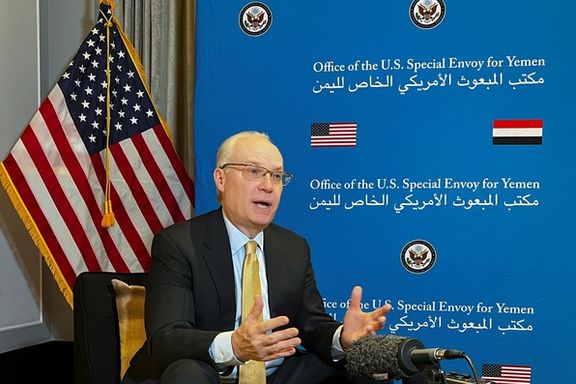
The US has warned Yemen’s Iran-backed Houthi rebels to stop attacking ships in the Red Sea, according to reports.

The US has warned Yemen’s Iran-backed Houthi rebels to stop attacking ships in the Red Sea, according to reports.
The US has warned Yemen’s Iran-backed Houthi rebels to stop attacking ships in the Red Sea, according to reports.
American news website Axios cites officials in the Biden administration as issuing the warning via several channels.
The US special envoy for Yemen, Tim Lenderking has requested that his Saudi Arabian, Omani, and Qatari counterparts give the Houthis the message to stop the attacks.
Houthi militants in Yemen are part of a so-called “Resistance Front” alliance of Iran-backed forces in the region that also includes Hezbollah.
In the two months since the war in Gaza began, Yemeni rebels have intensified their attacks on ships traversing the Red Sea, one of the world's busiest maritime routes, after calls to stop shipments to Israel by Iran’s leader.
While Iran has avoided direct military engagement in the Gaza war, its armed proxy forces in Iraq, Syria, and Yemen have launched more than 90 attacks.
According to the US military, the Yemeni attacks against commercial ships are “fully enabled” by Iran.
Last week, US National Security Advisor Jake Sullivan indicated that Washington was in discussions with other countries regarding the formation of a maritime task force to ensure the safe passage of ships in the Red Sea.
Following Sullivan’s comments, the Iranian Defence Minister Mohammad Reza Ashtiani cautioned on Thursday that the proposed US-backed multinational task force to protect Red Sea shipping would encounter "extraordinary problems."
"Nobody can make a move in a region where we have predominance," he said, referring to the Red Sea.
Last week Reuters reported senior sources in Iran-aligned groups had indicated the Houthi attacks were part of a bid to pressure Washington to stop Israel's retaliation in Gaza.

The perpetrators of a rocket attack on the US embassy in Baghdad are linked to local security forces, Iraqi officials have revealed.
The incident on December 7 was the latest in a series of attacks against American targets in the region by suspected Iran-backed forces.
Speaking on Thursday, Iraqi Prime Minister Mohammed Shia al-Sudani’s office called the attack on the embassy a “terrorist act”, and said a number of arrests had been made, with more expected to come.
The statement, issued by Special Forces Major General Yehia Rasool, did not name the suspects or identify which security services they were associated with.
According to an anonymous Iraqi security official cited by news agency AFP, 13 people had already been arrested, including members of the security forces.
The US Ambassador to Iraq Alina Romanowski on Thursday tweeted praise for the Iraqi authorities for “successfully apprehending a number of those responsible for the terrorist attacks”.
The attack on the embassy was the first in well over a year and came after weeks of incidents targeting US forces in the region that had been claimed by Iran-backed armed groups.
No group has specifically claimed responsibility for the December 7 attack and there were no reports of casualties or damage.
Approximately 90 attacks against US bases in Syria and Iraq have been launched by the Iranian-sponsored military alliance in the region since the beginning of the Israel-Hamas war on October 7.
The conflict was triggered by a surprise attack by Hamas in which around 1,200 Israelis and other nationals were killed and more than 240 civilians kidnapped.
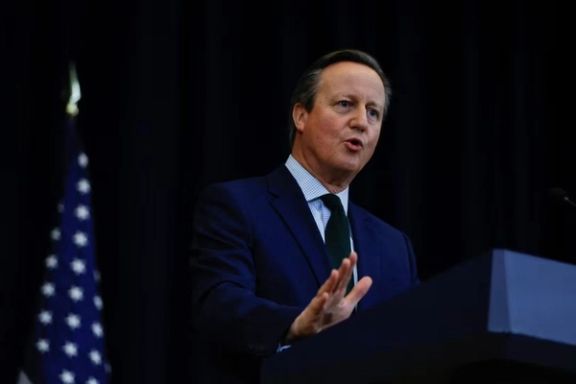
Britain slapped new sanctions on seven Iranian and Palestinian officials, and one entity over their links to Hamas and other militant groups on Thursday.
The new designations mostly include senior commanders of Iran’s Revolutionary Guard extraterritorial Quds (Qods) force (IRGC-QF).
According to a statement released on the British government’s official website, the sanctions target Esmail Qaani, the head of IRGC-QF, Mohammed Saeed Izadi, the head of IRGC-QF Palestine branch, three other IRGC commanders, and two Hamas and Islamic Jihad envoys to Iran.
IRGC-QF Palestine branch is the only entity mentioned in the list of new bans announced by the British government.
The sanctions will enforce UK travel bans and asset freezes for the targeted individuals and entity over their “hostile” activities, especially those aimed at threatening or destabilizing Israel.
The British government called IRGC Qods force a “notorious” entity which “leads Iran’s operations outside the country and provides support to regional partners and proxy groups.”

Though the Islamic Republic has avoided any direct military involvement in the Israel-Hamas conflict, the regime has used its allies such as Houthis and proxy groups in Iraq and Syria to attack Israeli and American targets in the region.
The new sanctions will convey the message to the Islamic Republic that it will be held accountable for its “appalling behavior,” British Foreign Secretary David Cameron stressed. A new Iranian sanction regime that gives the UK "extensive new powers" to disrupt Iran’s "hostile activities in the UK and around the world" also took effect Thursday.
"Sanctions will target Iran’s decision makers and those doing its bidding, with the regime also including new restrictions on Iran’s drone programme and shipping," the British Foreign Office said in a statement.
"The behaviour of the Iranian regime poses an unacceptable threat to the UK and our partners," Cameron said, underlining "unprecedented threats" from Tehran to peace in the Middle East and to plots to kill individuals in Britain.
"It continues to threaten people on UK soil and uses its influence to destabilise the Middle East through its support to armed groups, including Hamas and Palestinian Islamic Jihad (PIJ)," added Cameron.
Moreover, a number of British sanctions against Tehran which were announced in July came into force on Thursday.
The bans were imposed in response to the “unprecedented threats” from the Islamic Republic, including “plots to kill individuals on UK soil.”
In October, MI5, the UK’s security service, warned that amid the war between Iran-backed Hamas and Israel, Tehran may be exploring new ways to threaten the security of Britain.
Despite a host of old and new sanctions against IRGC commanders, Britain has refused to designate IRGC as a terrorist organization.
In November, 70 lawmakers urged PM Rishi Sunak to list the IRGC as a terrorist organization. While individuals and entities related to the IRGC have been issued with sanctions from Britain, Canada, the US and European Union member states, lawmakers said the bans do not go far enough.
According to the Foreign Office, the UK has more than 350 sanctions designations in place on Iranians and entities.

The UK police have released footage of a detained suspect gathering information on Iran International's headquarters as his trial unfolds in London.
Magomed-Husejn Dovtaev (Mohammad-Hussein Dovtaev), 31, originally from Chechnya but residing in Austria, was detained at Chiswick Business Park by officers from London’s Metropolitan Police Counter-Terrorism Command in February.
According to prosecutors, he tried to take photos and videos of the security arrangements around the office building that housed Iran International and send the intel to a third party. He is charged with a single count of attempting to collect information "likely to be useful to a person committing or preparing an act of terrorism." He has pleaded not guilty. The trial is expected to conclude next week.
During the fourth day of his trial on Thursday, the Metropolitan Police released footage of Dovtaev as he arrived at London's airport, where he took a taxi directly to the Chiswick Park near the former Iran International headquarters. Donning a black jacket and baseball cap while his face was covered with a mask, he approached the entrance of Chiswick Park and surveyed the security details of the building's entrance and its surroundings.
According to prosecutors and the police, Dovtaev also engaged in a conversation with one of the building's guards and introduced himself as a tourist visiting a friend. The guard asked him to stay away from the building, but he continued to wander in the vicinity. The prosecutor believes that he used his mobile phone camera to record images of the building and its surroundings. Later, two other guards became suspicious and called the police who detained him at the scene.
Prosecutor Nicholas de la Poer told London's Old Bailey on Monday that Iran International became a target for reprisals following its reporting on the death in custody of Mahsa Amini in Iran last year and subsequent protests in the country. Iran's minister of intelligence later declared Iran International a terrorist organization, de la Poer said, which meant its employees "became targets for violent reprisals".
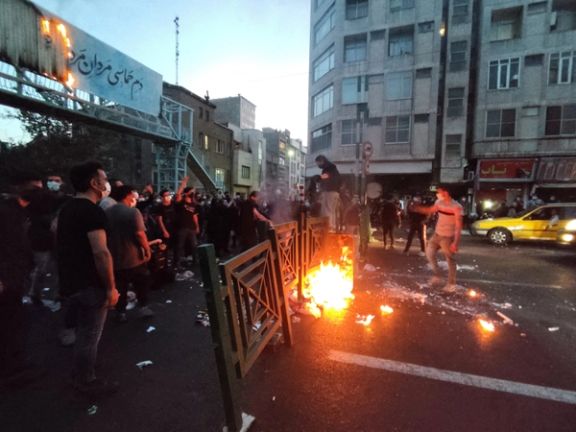
"The prosecution does not suggest that (Dovtaev's) purpose on Feb. 11 was to carry out such an attack or that it was intended that he would participate in an attack on a further date," de la Poer said. He added that Dovtaev went to Iran International's headquarters, "no doubt acting on the instructions of others, "Dovtaev's visit "demonstrates that planning by others was already under way", de la Poer said, adding that videos pre-dating Feb. 11 of Iran International's headquarters and security protection had been saved to his phone.
In November 2022, Volant Media, the parent company of Iran International, said that two of its journalists had been notified of direct threats. It said in a statement the Metropolitan Police had formally notified both journalists that these threats represented an imminent, credible and significant risk to their lives and those of their families. Following the significant escalation in Iranian state-backed threats and advice from the London Metropolitan Police, Iran International TV announced in February that it reluctantly and temporarily closed its London studios and moved broadcasting to Washington DC. After months of hiatus in broadcasting from the UK, the network relaunched operations from a new London building in September.
Faced with nationwide antigovernment protests since mid-September, the Islamic Republic has blamed foreign-based Persian broadcasters such as the BBC Persian and Iran International of “fomenting unrest”, while all media in the country are under tight government control and present protesters as “rioters” and “terrorists”.According to Iran’s Intelligence Minister Esmail Khatib, the Islamic Republic regards Iran International as “a terrorist organization.” He has stated that its staff and anyone affiliated with the channel will be pursued by the Ministry of Intelligence all over the globe, reiterating threats to “punish all those” who had a role in popular protests against the regime, wherever they might be.
Political commentator Ali-Hossein Ghazizadeh told Iran International Thursday that Dovtaev’s operation is just a part of a wider effort by the Islamic Republic to target Iran International and its journalists. In addition to Dovtaev’s case, there are many other reports released by the British police about plans orchestrated by the agents of the Islamic Republic, he added. According to Ghazizadeh, recruiting field agents from other countries to gather intel on possible targets or hit operations is the modus operandi of Iran’s Revolutionary Guard’s intelligence apparatus, especially under its former chief Hossein Taeb.
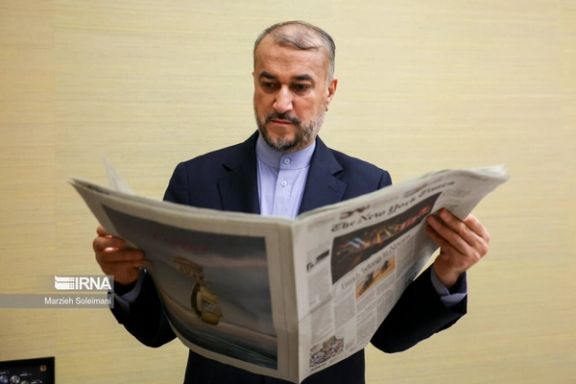
Iran's Foreign Minister Hossein Amir-Abdollahian stated on Thursday that the US is fully involved in the Gaza war while sending repeated messages of restraint to the rest of the region.
Amir-Abdollahian was speaking at a UN meeting in Geneva alongside his counterparts from other Middle Eastern countries.
He warned on the first day of the Global Refugee Forum on Wednesday that Israel would not be able to continue to fight for “even an hour without US support” and unless immediate action is taken to end "the savage attacks by the apartheid regime of Israel" on the Gaza population, the conflict would spread to other parts of the region.
But in keeping with the Islamic regime’s strategy of avoiding responsibility, he said on Thursday during the same summit that Iran has no interest in expanding the conflict and pinned the blame on US involvement in the war.
Iranian officials have referred to Hamas's attack on numerous Israeli targets on October 7 as a purely “Palestinian operation” and denied any involvement. During the offensive more than 1,000 civilians in Israel were killed and more than 240 were taken hostage.
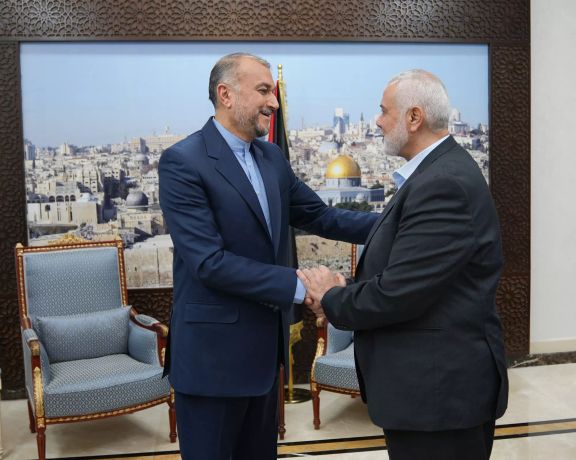
But at the same time the so-called "Resistance Axis", a military alliance sponsored by Iran, has launched around 90 attacks against US bases in Syria and Iraq since the beginning of the war. In addition, Tehran-backed Houthis in Yemen continued to attack commercial ships in the Red Sea following a speech by Iran's leader.
Iran's President Ebrahim Raisi was scheduled to participate in the UN Global Refugee Forum, but instead, the Iranian delegation was led by Foreign Minister Hossein Amir-Abdollahian after a legal complaint was filed on Monday asking Swiss authorities to arrest Iran's President Ebrahim Raisi if he traveled to Geneva.
The complaint was filed by three former Iranian political prisoners who escaped the Islamic Republic's 1988 prison massacres.
On Tuesday, Nobel Peace Prize Laureate Narges Mohammadi, in a letter to the Swedish Prime Minister, highlighted Raisi's role in the “Death Committee”, which oversaw summary executions of approximately two thousand political prisoners during the 1980s.
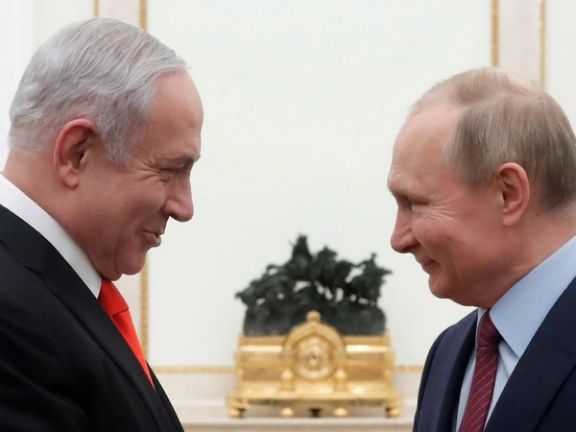
An Iranian newspaper linked to the Supreme Leader has called for Russia to take a harder line against Israel over Gaza.
Kayhan, a daily paper affiliated with Ali Khamenei's office, said that the least expected from Moscow, as an ally, is to condemn what it refers to as “Israel's heinous crimes in the Gaza Strip”.
The newspaper urged Russia to play a more active role in condemning Israeli actions in Gaza, emphasizing that such support for the Palestinian cause would enhance Russia's “credibility and prestige globally”.
Kayhan highlighted the potential diplomatic advantages for Russia and suggested that swift action is essential.
The paper also claimed that the contribution of the Palestinian “resistance front” has benefitted Russia. Kayhan suggested the October 7 Hamas attack had possible diplomatic and geopolitical outcomes that will benefit Moscow.
This comes in the wake of Israeli Prime Minister Benjamin Netanyahu expressing disapproval of Russia's cooperation with Iran. Netanyahu raised concerns similar to those voiced by the United States, criticizing Russian statements against Israel's military operation in Gaza.
Recent diplomatic developments include Putin's visits to the United Arab Emirates and Saudi Arabia, followed by talks with Iranian President Ebrahim Raisi in Moscow. The discussions involved the Middle East crisis, with Iran and Qatar advocating for a ceasefire in Gaza. Israel and the United States argue that such a ceasefire would benefit Hamas and potentially lead to future crises.